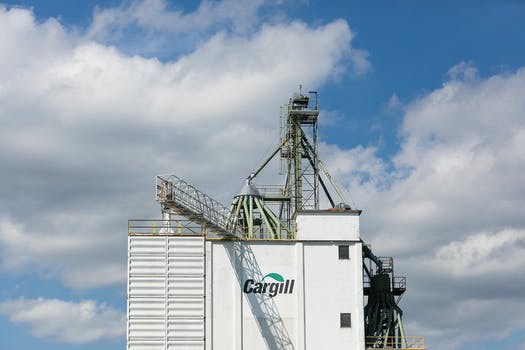
Cargill announced incentives for farmers to improve carbon absorption in soil.[/caption] A year after pledging to convert 10 million acres of U.S. farmland to regenerative practices within a decade, Cargill Inc. says it developed a system for paying farmers and measuring improved carbon absorption in their soil. Its new "Regen Connect" program, unveiled Thursday, pays farmers for measurably increasing the carbon sequestered in their soil by adopting cover crops and reduced- or no-tillage practices. The Minnetonka-based agribusiness enrolled hundreds of farmers, accounting for "hundreds of thousands of acres" in the program's first year, said Ben Fargher, Cargill's vice president of sustainability for its North America agriculture supply chain. Climate scientists, food companies and many farmers see the potential of this system, but debate how — or even if — large-scale operations can adopt such practices. "Farmers are inherently looking at the sustainability production of their farm, so it makes sense to them," Fargher said. "For us, the key is to make it about the economics and how it suits their particular business." For Cargill, supporting regenerative agriculture is a twofold benefit: It helps them meet their corporate environmental pledges while also responding to pressure from their customers, like food companies, who want to offer consumers the assurance their food production isn't harming the planet. "We've got these global environmental challenges, we have got all these commitments from our [food company] customers, and we actually know that farmers can be part of the solution — and produce food and environmental outcome at the same time," Fargher said. The food and agriculture community over the last five years has increasingly embraced the idea of regenerative agriculture — a suite of farming practices aimed at turning depleted soil into healthy earth teeming with life. Advocates say it's a crucial way the food system could slow, or even reverse, the effects of climate change. But for some farmers, economic risk wasn't matched by the potential payout. That's why Cargill, a middleman between growers and packaged food companies, created the "Regen Connect" program. The company uses a predictive modeling technology from Regrow, a carbon measurement firm, to forecast precisely how much additional carbon an individual farmer could absorb on any given field by implementing these regenerative processes. Cargill then puts a price on that based on the carbon-trading markets. It pays the farmer 50% of that upfront and the rest of it at the end of the growing cycle after the soil's carbon level is measured and verified. A new study set to be released later this month by the Soil Health Institute, and supported by Cargill, seeks to allay some fears. The survey of 100 farmers who had long ago adopted these practices found their costs were lower and revenue higher as a result of these practices. Find more. Source: Online/KSU
Comment Now